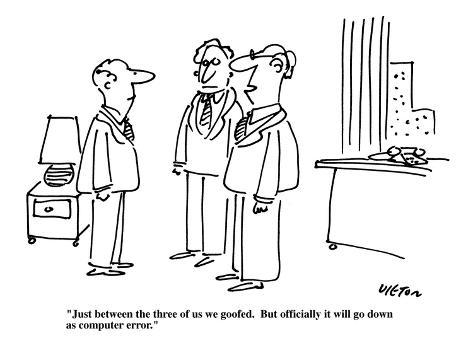We post news and comment on federal criminal justice issues, focused primarily on trial and post-conviction matters, legislative initiatives, and sentencing issues.

UNODIR (NOT UNICOR)
UNODIR is useful military slang meaning “unless I am directed otherwise.” It is a good way to report to your boss that you intend to take a certain action, and put it on him to tell you not to before you do. This is not to be confused with UNICOR – the catchy acronym by which Federal Prison Industries, Inc., is known – a place that pays inmates top dollar for the manufacturing of everything from body armor to award plaques to office products to… yeah, even license plates.
A federal defendant’s criminal history has a great influence on his or her federal sentence: the more skilled you are in the ways of criminal conduct, the thinking goes, the more substantial your sentence should be, in order to get your attention.
 After one of Markell Hamilton’s prior state convictions was vacated by an Iowa court, the 8th Circuit remanded his case “for resentencing to allow the district court to determine whether the state conviction was appropriately included in his criminal history score.” When Mark tried to challenge some relevant conduct alleged in the presentence report, the district court refused, holding that the scope of resentencing was limited to the issue involving Mark’s previous Iowa conviction, and ultimately reimposed the same 81-month sentence.
After one of Markell Hamilton’s prior state convictions was vacated by an Iowa court, the 8th Circuit remanded his case “for resentencing to allow the district court to determine whether the state conviction was appropriately included in his criminal history score.” When Mark tried to challenge some relevant conduct alleged in the presentence report, the district court refused, holding that the scope of resentencing was limited to the issue involving Mark’s previous Iowa conviction, and ultimately reimposed the same 81-month sentence.
Last week, the 8th Circuit remanded again, holding that the district court was not prohibited on remand from considering other issues, too. “On remand for resentencing,” the Circuit said, “a district court can hear any relevant evidence that it could have heard at the first hearing,” except for issues decided by the appellate court. “Where a remand is limited to the resolution of specific issues, those issues outside the scope of the remand are generally not available for consideration… But where a court of appeals vacates a sentence or reverses a finding related to sentencing and remands the case for resentencing without placing any limitations on the district court, the court can hear any relevant evidence… it could have heard at the first hearing.”
United States v. Hamilton, 2020 U.S. App. LEXIS 5034 (8th Cir. Feb. 19, 2020)
– Thomas L. Root



